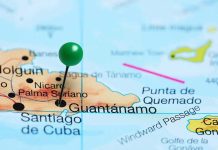
San Francisco introduces California’s inaugural Speed Safety System Pilot Program, a controversial scheme aiming at safer roads through income-adjusted fines.
Key Takeaways
- San Francisco is the first in California to introduce 33 fixed-speed cameras in a bid to enhance traffic safety.
- The fines are income-based, offering significant discounts to those near the poverty line.
- This system has evoked criticism for creating perceived favoritism in law enforcement.
- The city’s initiative could result in the issuance of up to 42,000 tickets daily, impacting a wide range of drivers.
- The pilot program seeks to influence similar implementations in other Californian cities.
San Francisco’s New Speed Enforcement
San Francisco has positioned itself as a pioneer in California with the installation of 33 fixed-speed cameras, a crucial component of the Speed Safety System Pilot Program. This initiative, greenlit by Governor Gavin Newsom, aims to curb speeding, primarily in high-risk zones like school areas. The focus is not just on enforcement; it involves educating drivers in its initial phase by sending warning notices rather than immediate penalties.
The most controversial aspect is the income-based penalty structure, which scales fines according to the driver’s earnings. Discounts can reach up to 50% for those with low incomes, aiming to mitigate financial burdens. Critics, however, perceive this scheme as fostering inequality, preferring a uniform application of traffic laws for fairness. “A speeding ticket isn’t a tax bill; it’s a consequence for endangering lives,” asserted Richie Greenberg, a San Francisco resident and political commentator.
Public Reaction and Legislative Considerations
The program has sparked divisive opinions. Some criticize it as a “woke penalty loophole” while others commend its fairness in acknowledging economic diversity. Speeding fines can range from $50 to $500, with allowances for annual incomes under $30,120. Data collected from this initiative aims to guide other cities in implementing similar strategies.
Legislation backing this program prevents penalties from affecting driving privileges or adding license points. The cameras, managed by Verra Mobility, operate without using facial recognition, focusing purely on vehicle speed detection. This regulatory framework is crucial to maintaining privacy and operational integrity.
San Francisco’s New Speed Camera Fines Scaled by a Driver’s Income Are Fast Approaching https://t.co/vXtNx3j21s pic.twitter.com/WLrXleUBHg
— warrantyuplift (@warrantyuplift) March 26, 2025
Future Implications
The pilot program’s success could prompt other Californian cities to adopt similar systems, potentially redefining traffic management statewide. The effectiveness of these measures remains under scrutiny as they seek to balance safety and fairness. Currently, the system represents a significant shift from traditional punitive methods to a more inclusive model reflecting the economic realities of those penalized.
As with any policy affecting public life, transparency and consistent enforcement will be key to its long-term acceptance and success. The possibility of setting a legal precedent for income-sensitive fines remains a potential challenge that may affect broader law enforcement perspectives throughout California.
Sources:
- Fury as it’s revealed select Californians will pay less for speed camera fines under woke new policy – NewsBreak
- Greenberg: SF’s Speed Fines are a Wealth Grab – California Globe
- San Francisco rolls out Newsom-approved program fining speeders based on income – DNyuz







